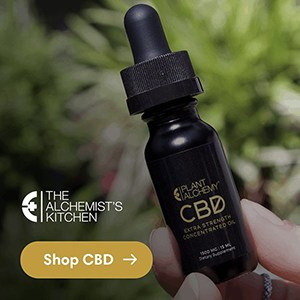Knowing how to partake in an ethical harvest will be crucial to you as a steward of the land. The spring sun is waking the plants from their seed, and we are growing eager to forage. Though there are a few considerations before we begin frolicking through the woods partaking in this practice. As plant folk, we must remember that we are to protect them. We are living in a time of now or never when it comes to plant conservation, as we have already lost many valuable species, and many medicinal plants are at risk. The bar has been pushed, and our only option is to put the land first. We can no longer believe that by using plants we are being sustainable.
How can we think long term?
Our greatest job as people of the plants is thinking beyond today or tomorrow. Everything we do has an impact, and the ways in which we practice a harvest is crucial. While there is nothing more sustainable than knowing your plants and their at-risk assessment, growing your own plants at home is the most sustainable practice we can partake in. Nothing compares to growing what you need right outside your back door, or on a small balcony from your apartment. Although most of us won’t be able to grow all of the plants that we wish.
When the spring sun begins to shine, many of us are thrilled to visit our favorite places in nature to see what’s blooming before our eyes. The thrill of seeing the crocus, daffodils, purple dead nettles and violets is an incomparable feeling. The happiness of picking flowers to bring home, making a wild pesto or to crafting a delicious flower treat is only some of the joys we can receive by harvesting out in the wild. But, how can we be sure we are harvesting sustainably so we can be the best earth stewards we can possibly be? Let’s outline 6 ways you can partake in an ethical spring harvest this year:
- Have a positive plant ID -Knowing that you have a positive plant ID will tell you a lot more about a plant other than its name. It’s a way for you to do further research into the plant you are wishing to harvest. One of my favorite resources are pocketbooks such as “Newcombs Wildflower Guide“. This is a great book to identify plants, but an app on your phone may not be. Sometimes the identification apps that we can download onto our phones are not as reliable as we may think. Certainty is crucial.
- Make sure the plant isn’t at-risk -Many plants we love such as echinacea or goldenseal are only that of a few plants in which are critically at-risk, according to The United Plant Savers. Once you have a positive ID, you’ll want to be certain that the plant you are harvesting isn’t in danger.
- Take only what you need -You should have a plan for your harvest! There is nothing worse than over harvesting and having more than you needed. Think about why you are harvesting a particular plant, and what you plan on using it for. Taking too much takes away from the land and the animals who rely on the plants as a food source.
- Leave more than you took -Before you take, examine the abundance. Ideally you want to be sure that anything you do take looks as if you took nothing at all. There should be no visible change to the environment.
- Know how to harvest properly -It’s important to not only have clean and proper tools, but it’s also important to understand how and when a plant reproduces. This considers the season you are in, as well as understanding where you are cutting. Sometimes, your tools can sicken a plant, or your improper cutting could stunt the sex organs from reproducing.
- Know your local laws -A good earth steward respects protected lands. It’s in the plants best interest, and yours, to know if it’s okay for you to harvest where you are. It is best to do some research and most of all make sure you are not trespassing.
Continuing your ethics all year long
As you can imagine, these guidelines don’t only pertain to the spring season. These six ways to partake in an ethical harvest will carry you throughout the years to come. Remember the following phrase: is it true, is it kind, is it necessary? When in doubt, this phrase should always come to mind! Without fail you should now have the key fundamentals of harvesting sustainably. The earth is our mother, and the plants are her kin. I now have no doubt that you will do everything in your power to be the positive steward of the land you have always known yourself to be.







